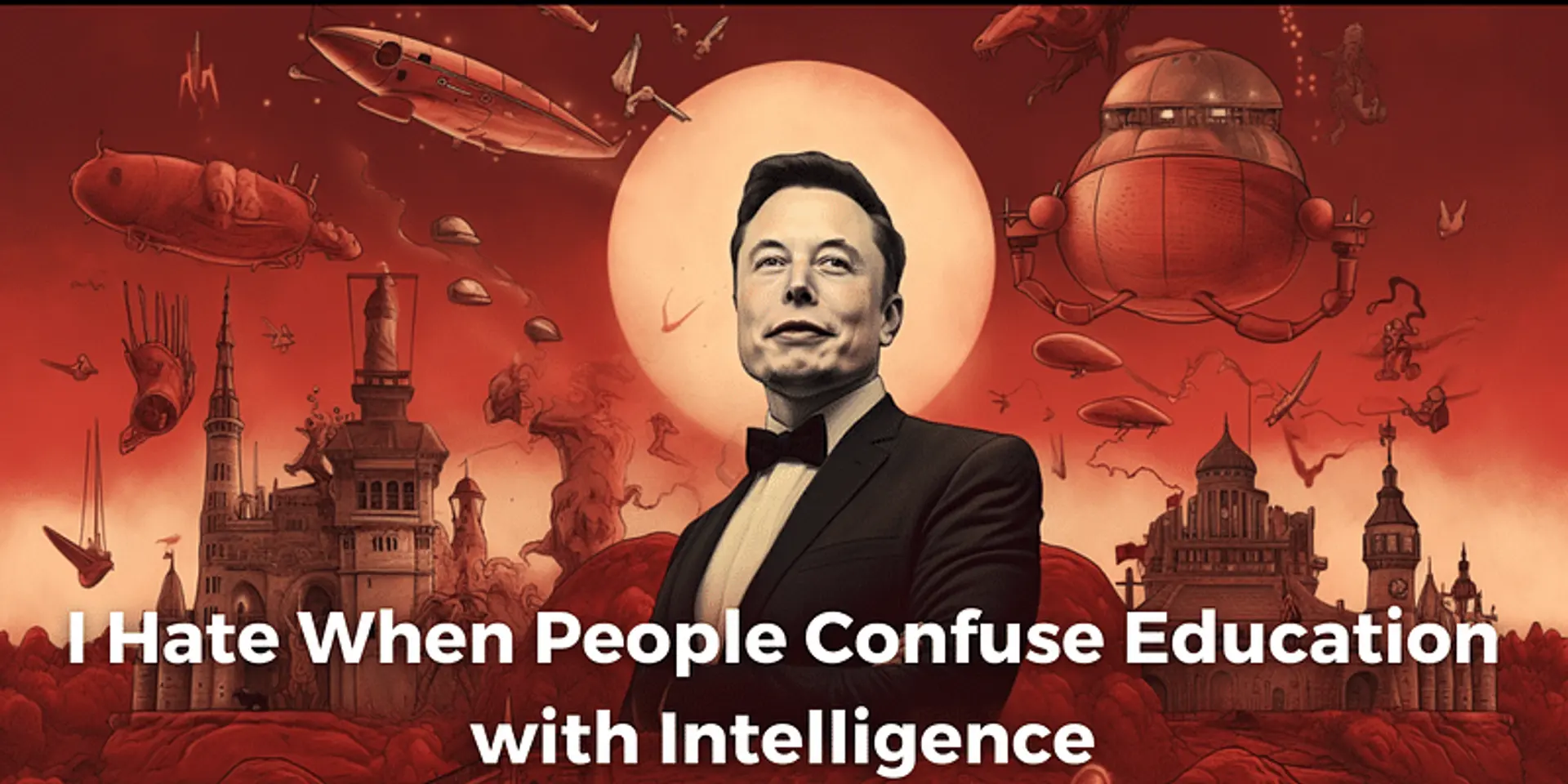Elon Musk's Wake-Up Call: Rethinking Education vs. Intelligence
Elon Musk, the mastermind behind Tesla and SpaceX, sparks a conversation on the limits of formal education and the true essence of intelligence. Discover why Musk believes that a degree doesn't define one's intellect and how we can foster true innovation in society.
Elon Musk, a stalwart in the tech industry and CEO of SpaceX and Tesla, has often challenged conventional narratives surrounding education and intelligence. One of his notable statements, "I hate when people confuse education with intelligence, you can have a bachelor's degree and still be an idiot", has ignited discussions and urged many to re-evaluate the established correlation between educational qualifications and one's intellectual capacity.
At the crux of Musk's assertion is the critical differentiation between education and intelligence. Formal education, predominantly characterised by structured learning and assessment of retention ability, often fails to encapsulate the broad spectrum of intelligence which encompasses attributes like critical thinking, creativity, and adaptability. Musk's journey itself, a beacon of innovation and critical thought, surpasses the boundaries of his formal education in physics and economics, epitomising that intelligence is not confined to the realms of educational accolades.
Moreover, Musk's bold stance sheds light on the inherent shortcomings of traditional education systems which, more often than not, foster rote learning over critical thinking and creativity. This critique subtly calls attention to a societal flaw where individuals are frequently judged based on their educational benchmarks, overlooking their actual abilities and potential to innovate.
In addition, Musk advocates for the acknowledgement and appreciation of diverse learning pathways. In a world where information is at our fingertips, self-learning and experiential knowledge have become potent alternatives to formal education, sometimes fostering more rounded and adaptable individuals. This speaks volumes about the importance of recognising and fostering intelligence in varied forms, promoting a culture that encourages individuals to carve out unique paths to knowledge and wisdom.
Musk's forthright statement serves not only as a critique of the traditional education system but also as a clarion call for a broader understanding of intelligence. It encourages society to move beyond narrow perceptions and to foster a culture that nurtures creativity and innovation. While the statement may seem brash, it beckons us to initiate essential conversations surrounding the transformation of the modern education landscape to one that embraces and nurtures the multi-faceted nature of intelligence. Thus, Musk's perspective urges us to reimagine a society where intelligence is not gauged by degrees but is recognised and celebrated in its diverse manifestations, fostering a generation of true thinkers and innovators.



